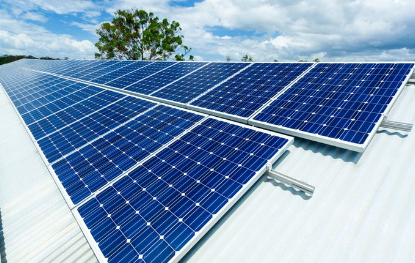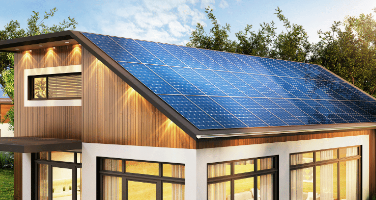As businesses increasingly embrace solar solutions to meet their energy needs, the strategic placement of solar systems becomes a crucial consideration. Determining the optimal location for solar panels can significantly impact their efficiency and, consequently, the overall effectiveness of your solar investment. In this article, we explore key factors to consider when deciding where to set up a solar system for your business.

Where to Install Your Business Solar System
1. Roof-Mounted Systems
Roof-mounted solar systems are a popular choice for businesses, leveraging unused roof space to generate clean energy. When considering this option, assess the structural integrity of your roof to ensure it can support the weight of the solar panels. Additionally, evaluate the orientation and pitch of the roof to maximize sunlight exposure throughout the day. South-facing or west-facing roofs often offer the best solar potential.
2. Ground-Mounted Systems
For businesses with ample open space surrounding their premises, ground-mounted solar systems provide an alternative to roof installations. These systems are positioned on the ground using mounting structures, allowing for flexibility in orientation and tilt angles. Ground-mounted systems are ideal for businesses with land available and can be adjusted for optimal sunlight exposure based on the specific characteristics of the site.
3. Solar Carports
Businesses with parking facilities can explore the option of solar carports, which serve a dual purpose of providing shade for vehicles while generating solar energy. Solar panels are mounted on a canopy structure above parking spaces, utilizing the otherwise unused space. This innovative approach not only generates clean energy but also enhances the sustainability profile of the business.
4. Integrated Solar Roofing
Some businesses opt for integrated solar roofing solutions, where solar panels are seamlessly integrated into roofing materials. This approach combines functionality with aesthetics, providing a visually appealing and streamlined solar solution. Integrated solar roofing is particularly popular in industries where the architectural design is a crucial aspect of the business.
Factors to Consider for Solar Panel Location
1. Consider Local Climate and Sunlight Exposure
The local climate and sunlight exposure play a pivotal role in the performance of a solar system. Assess the average sunlight hours in your location, taking into account seasonal variations. Understanding these factors helps determine the ideal placement and tilt angles for solar panels to capture maximum sunlight throughout the year.
2. Shade Analysis
Conduct a thorough shade analysis to identify potential obstructions that may cast shadows on the solar panels. Trees, neighboring buildings, or other structures can significantly impact the efficiency of a solar system by blocking sunlight. Minimizing shading ensures consistent and optimal energy production.

3. Building Orientation
The orientation of your business premises plays a critical role in the effectiveness of solar installations. South-facing buildings generally receive more sunlight throughout the day, making them ideal for solar energy production. However, with the right design and equipment, solar systems can still be effective on east or west-facing structures.
4. Local Regulations and Zoning Requirements
Before finalizing the location of your solar system, familiarize yourself with local regulations and zoning requirements. Some areas may have restrictions on the installation of solar panels, particularly in historic districts or areas with specific architectural guidelines. Compliance with local regulations is essential for a smooth and legally sound solar project.
5. Accessibility and Maintenance Considerations
Ensure that the chosen location for your solar system is easily accessible for installation and maintenance purposes. Accessibility is crucial for routine inspections, cleaning, and any necessary repairs. Considering ease of access contributes to the long-term efficiency and durability of your solar investment.
Conclusion
Choosing the right location for your business solar solutions is a nuanced decision that involves a careful evaluation of your premises, energy goals, and local conditions. Whether it's a roof-mounted system, ground-mounted installation, solar carports, or integrated solar roofing, the key is to align the placement with the specific needs and characteristics of your business. By strategically positioning your solar system, you not only maximize energy production but also enhance the overall sustainability and resilience of your business operations.
